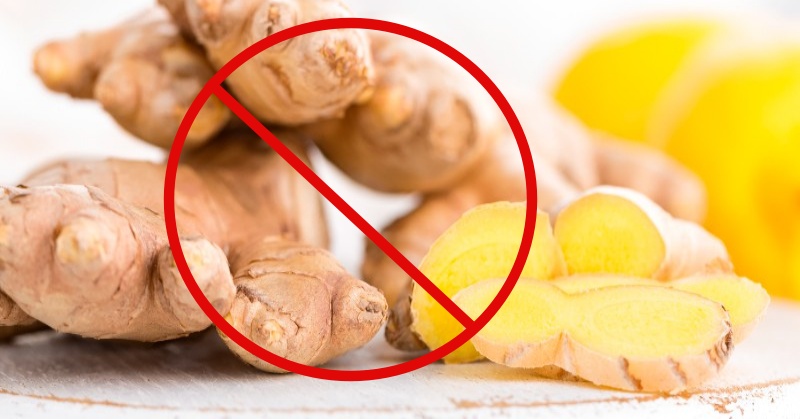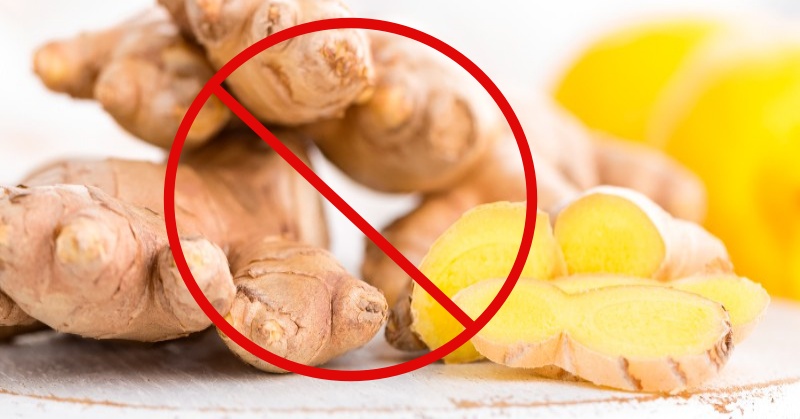Though ginger is a wonderful remedy for many health issues, certain people with specific health conditions should avoid it. Let’s delve into the details.
Ginger, that magical root, can alleviate digestive problems, colds, and even persistent coughs. But hold on! It’s not all good news. While ginger offers numerous benefits, it isn’t suitable for everyone. There are particular conditions where ginger might do more harm than good. If any of these apply to you, steer clear of ginger.

1. Blood Disorders
Ginger is known to enhance blood flow, which can benefit those dealing with issues like obesity, Raynaud’s disease, or peripheral artery disease.
However, for individuals with hemophilia, a condition where the blood doesn’t clot properly, ginger can be risky. It might interfere with medications designed to treat hemophilia, potentially leading to complications.
2. Underweight
Rich in fiber, ginger helps regulate stomach pH, prompts the secretion of digestive enzymes, and aids the body in burning fat. But for those who are underweight, ginger isn’t a good idea. It can lead to hair loss, muscle mass reduction, decreased appetite, further weight loss, and even irregular menstrual cycles in women.
3. Prescription Drugs
If you’re on prescription medications for diabetes or high blood pressure, you should avoid ginger. It can alter the effectiveness of insulin, beta-blockers, and anticoagulants. Additionally, ginger acts as a blood thinner, which might lower blood pressure adversely.
4. Pregnancy
While ginger can strengthen muscles and aid digestion, pregnant women should be cautious. Ginger has the potential to cause uterine contractions and even premature labor.
Some pregnant women use ginger to alleviate morning sickness, but it’s best to avoid it, especially in the last trimester. Additionally, ginger can interfere with the body’s absorption of iron and fat-soluble vitamins, which are crucial during pregnancy.
In conclusion, ginger’s numerous benefits can quickly turn into drawbacks for individuals with these four conditions. Instead of ginger, those affected might consider using alternatives like cayenne pepper or paprika in their diets. Stay safe and ensure your health first!





